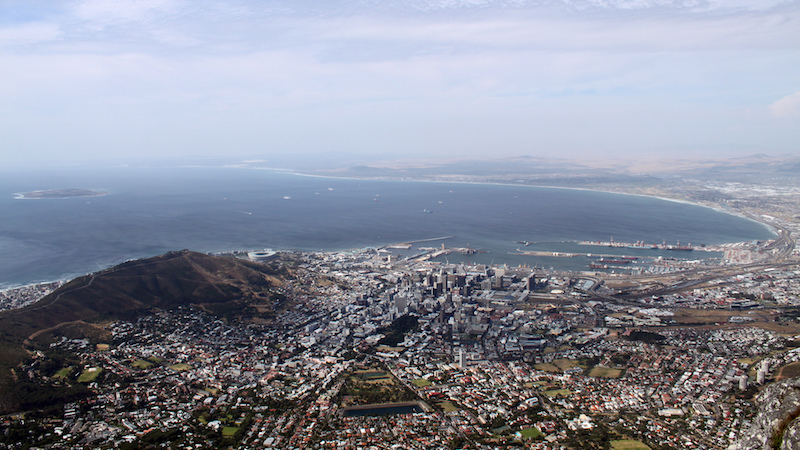The drought that threatened to turn off the taps in Cape Town was made three times more likely by global warming, according to a study released on Friday.
Over a three-year period, weather stations across the Western Cape recorded 30-50% less rainfall than average.
In the absence of human-caused global warming, the region would have been hit by a severe dry spell like this once every three centuries, according to the report from the World Weather Attribution (WWA) consortium of scientists.
Now, with the world having warmed 1C since the industrial age began, Cape Town’s 3.7 million residents and its city planners can expect a drought of this scale roughly once every century.
If the world warms to 2C – the agreed upper limit of the Paris climate deal and a likely scenario as governments drag their heels – a drought like this would happen roughly once every 33 years.
“Preparing for more of the same would be wise,” said Friederike Otto, lead author of the study and deputy director at Oxford University’s Environmental Change Institute.
As reservoirs dried up, the city authorities came close to shutting off water supplies completely: “Day Zero”. But a huge civil effort to curb consumption averted that emergency measure.
Report: Pakistani senator calls for climate cooperation with India amid water crisis
During and after Cape Town’s water crisis, commentators argued that climate change may be to blame for the drought, but Cape Town’s water problems were largely of its own making.
“Too often, in Africa and globally, actions to manage risk kick in only after a drought bites,” said Maarten van Aalst, director of the Red Cross Red Crescent climate centre, which works with the WWA.
“With nearly a million and a half people added to the world’s urban population every week, city authorities need to update plans for managing water to take account of how risks are changing.”
Climate change does not cause individual weather events, but in a warmer world, certain events have long been predicted to become more likely.
The WWA group looks at real world events and runs them through climate models of warmed and un-warmed worlds. They can then compare the frequency of similar events with and without humanity’s carbon intervention.
If you like what we do, support us
Become a CHN patron for as little as $5 per month to help us keep bringing you the most in-depth coverage of climate politics and underreported stories from around the world.
We have set up a Patreon account. It’s a simple, safe and easy way for you to become part of a community that will secure and guide our future.
Thank you!
